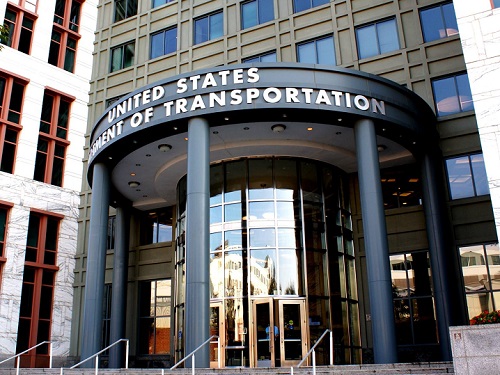Following its first meeting in late September, a revived U.S. Department of Transportation equity advisory committee plans to recommend new federal policies and practices aimed at making transportation systems more equitable to more people by June 2024.
[Above photo by USDOT]
The USDOT’s 24-member Advisory Committee on Transportation Equity or ACTE – which formally relaunched in August – is made up of representatives from state departments of transportations, private industry stakeholders, and nonprofit transportation groups.
According to the USDOT, the committee’s objective is “provide advice and recommendations” about:
- Practices to institutionalize equity into programs, policies, regulations, and activities;
- Establishing and strengthening partnerships with “overburdened and underserved communities” that the department hasn’t reached in the past;
- Offering a forum about equity concerns in local and regional transportation decisions;
- Providing “strength, objectivity, and confidence” to the department’s decision-making process.
The state DOT representatives on the committee are Roger Millar – secretary of the Washington State Department of Transportation and president of the American Association of State Highway and Transportation Officials – and Tunya Smith, director of Office of Civil Rights for North Carolina Department of Transportation.
USDOT Secretary Pete Buttigieg asked the committee at its inaugural meeting to “deliberate bold ideas…not as a theoretical exercise of what may be, but as a real opportunity to shape real work.” Buttigieg added that he wants the committee to join him in “working to change patterns of exclusion that literally have been cemented into American life for generations.”
Former USDOT Secretary Anthony Foxx – selected by Buttigieg to chair the re-constituted committee – originally established the ACTE during his 2013-2017 tenure. While the committee took no action at its first meeting, remarks from the members set the tone for committee’s work, which will include documenting past examples of inequity in transportation planning to inform future policies and practices.
“The promise of our democracy depends, in part, on correcting past mistakes,” Foxx said. “Transportation errors, as all of you know, can last a long time. Our responsibility will be not to engineer history but to tell it as pure and straight as it can be told.”
WSDOT’s Millar agreed that transportation “is not an end unto itself; it is a means to a lot of things, to economic prosperity, to social equity, to environmental justice, things that matter to our communities.” But he also reminded committee members that “the actions of transportation agencies did not happen in a vacuum…It’s really important that we remember that and we are not alone in our ability to do harm or to do good.”
Many comments from ACTE members focused more on the practical nature of the task at hand. NCDOT’s Smith, for example, said the ACTE should create dashboards and metrics “to look at how we evaluate these programs and how we frame and structure our policy decisions to lead to sustainable change.” She also said discussions of climate change should translate into actions to help communities, “particularly communities of color that are often impacted more heavily from storms, in not having proper drainage systems.”
Smith, who also manages the NCDOT Disadvantaged Business Enterprise program, urged the committee to include feedback from Historically Black Colleges and Universities, Minority Serving Institutions, and faith-based organizations “to really help us inform the work.”
The USDOT has not announced when the next ACTE meeting will take place.

